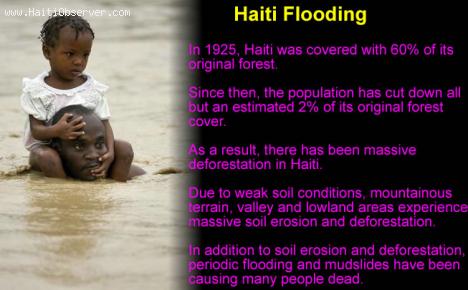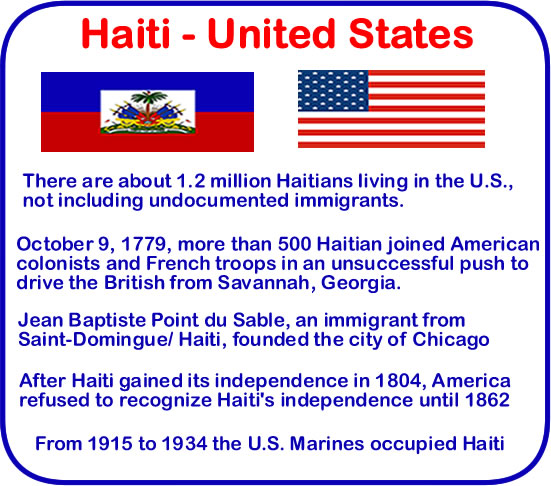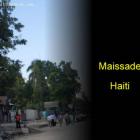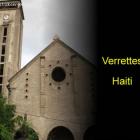ADVERTISEMENT
diaspora
Haitian-Canadian Alix Renaud receives the Prize Personality literary
Haitian-born literary artist Alix Renaud has received the Prize Personality Literary award for his contribution to the field. The Canadian Institute of Quebec awarded the prize to Renaud as part of its Award of Excellence for Arts and Culture in a bid to recognize his exemplary work in the fields of writing, poetry, linguistic and journalism. For more than 40 years, Renaud has been active in the world of literature and this did not go unnoticed.
During his career in Canada, Renaud, who is also the 2007 Prix Charles Biddle winner, has worked in almost every aspect of literature. From writing to linguistics, Renaud contributed greatly to the advancement of literature. The institute, upon giving out the award, praised Renaud's dynamic presence and the significant role he played in Quebec's literary world.
Ensuring Safety From Downed Power Lines During A Storm
Storms not only can cause flooding but can also cut off electricity and down power lines. When this happens, it can be very dangerous for people as they can be electrified and injured. This is the reason why it is necessary for anyone to know what to do when there are downed power lines, especially during a storm or any other disasters.
It is best to consider any down power lines dangerous and energized. The best thing to do when you encounter a downed power line is to get away from it. Make sure that you have at least 10 feet of space between you and the power line, as electricity can be transmitted through the ground.
What do we Haitians get for helping to Re-elect Barack Obama?
This is not scientific but I can safely say that more than eighty percent of Haitians who are eligible to vote in the US actually voted for Barack Obama this past election. People may have different reasons. Some Haitians voted for Obama because they believe that he is for poor people. Others think he is pro immigrant and wanted to thank him for the TPS he gave Haitians recently. Some Haitians also voted for Obama just because he is Black. That's OK too.
However, just like the other groups after voting for a candidate who wins an election, the Haitian community should expect something in return. We have issues within the Haitian Diaspora living in the US as well as back home in Haiti.
Will Haiti be better off with Barack Obama or Mitt Romney?
This is the day we all have been waiting for. This is election day in the United states and according to every single election poll results, the race is extremely close. We have a 50 percent chance that the next president of the United States could be either Barack Obama or Mitt Romney.
So the question is what is the implication for Haitians and Haiti if the next president of the US is Mitt Romney Vs Barack Obama?
Haitians all over the US overwhelmingly voted for the Democratic candidate Barack Obama. Will we be better off if Obama wins?
Lylah M. Alphonse, Indian Haiti news editor
She is born of a Persian mother from India and a father from Haiti. Lylah M. Alphonse is an American citizen who has achieved a great deal of chances to better herself. She is a renowned writer who has spent the better part of her life writing and editing work at newspaper stations and magazines. She is also a very much known person in The Boston Globe newspaper in Boston, Massachusetts where she writes a couple of sections at the Sunday magazine, writes for some of their Travel, Food and Living/Arts sections.
How to get Haitian Diaspora to invest in Haiti Economy
Haiti's history has seen more or less constant upheaval from 1804, up to the recent past. Survivor of 32 coup d'etats, provisional governments, and natural disasters, the most recent set-back was the 2010 earthquake. Port-au-Prince, still a mass of rubble, has 350,000 Haitians living in tent cities today.
The Government of Haiti (GOH) is working non-stop to attract foreign investment and get its economy restored. Many development banks, non-government organizations, and investment initiatives are funding projects to rebuild Haiti. One of the richest investment resources is the Haitian Diaspora. Made up of law, education, medical, science, and information technology fields, it is a bounty of resources Haiti needs to fully recover from its destruction.
Importance of Haitian Diaspora to Haitian Economy
The Haitian Diaspora has a vital role in helping Haiti revitalize its economy. One of its contributions is to Haitian families, overwhelmingly poor and dependent on remittances to provide for themselves.
Education is another area in which monetary support of the Diaspora is needed. Remittances have been estimated at up to 30% of Haiti's gross domestic product, essential to President Martelly's push to offer free public education to all Haitian children. He wants to tax wire transfers that could amass a broad projection of $50 million upward. The only obstacle is having enough political capital, ensuring the Diaspora will send money through wire transfers instead of other means.
The Power of the Haitian Diaspora
Haiti needs help from the most powerful source of financial resources, its Diaspora.
The Diaspora, dispersed throughout many countries, has the largest population living in the U.S., at 2.5 million plus residents. Its remittances to Haitian families, most of whom are desperately poor, totals up to around one billion annually, 25% of Haiti's gross domestic product (GDP). To give an idea of the significance of remittances, they exceed the GDP's annual foreign direct investment and export revenue.
The Diaspora is flush with not only huge cash reserves, but with potential investors, business partners, and innovators. The educated class of the Diaspora includes people with advanced degrees in law, education, medicine, science, and information technology, as well as business. Their brain trust is powerful and multi-faceted.
Haitian Diaspora Remittance Helps Haiti and U.S. Economies
Many Haitian Diaspora living in states like Florida, New York and Massachusetts send money to their families in Haiti with regularity. The recipients of these remittances are overwhelmingly poor. With their remittance income, they spend for the basics, which mean shelter, food staples, articles of clothing, and medicines. These people live well below the poverty line by any standard and 55% of them have no other income to depend on.
Since the 2010 earthquake toppled Haiti, the country's economy has depended heavily on receiving remittances from the Haitian Diaspora. With about one in five families receiving remittances from relatives, Haiti's Central Bank estimates the Diaspora sends around one billion yearly to Haiti. This figure adds up to more than 25% of Haiti's Gross Domestic Product (GDP), and exceeds its annual foreign direct investment and export revenue.
Who is the Real Haitian?
Is there such a thing as a real Haitian? Is it an ethnic confluence? A little Spanish blood here, a little French blood there? Is the real Haitian an émigré from the Congo? What about the lightness or darkness of skin tone? Is darker more Haitian than light? Or vice versa?
Does a real Haitian speak Créole or French? Are they Catholic, Protestant, or Voodoo believers? What kind of music do they listen to? To the big band sound of the 40s and 50s? Compás, Zouk, Racine? Or music that can only be described as country or folk? Is Manno Emmanuel Charlemagne or Emeline Michel the real Haitians, rather than T-Vice or Shleu-Shleu?
Our objective is to share with you news and information about Haiti and the people of Haiti. Traditions, habits and the way we were or grew are alive in this site. We highly recommend that you Subscribe to our Newsletter and also share with us some of the things that are memorable and made us unique people.



 Maissade, Haiti
Maissade, Haiti  Saint Marc, Haiti
Saint Marc, Haiti  Life After Death
Life After Death  Battle of Vertieres
Battle of Vertieres  Verrettes, Haiti
Verrettes, Haiti